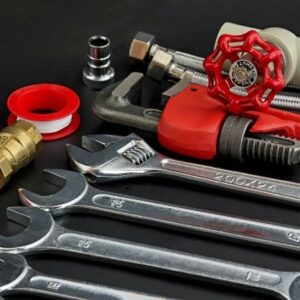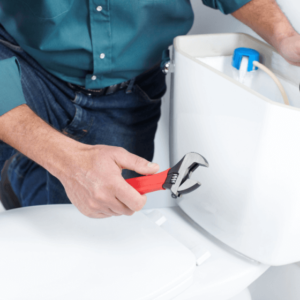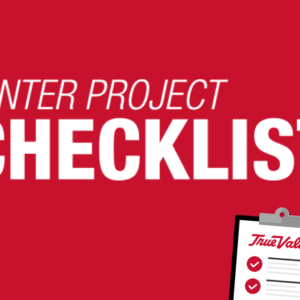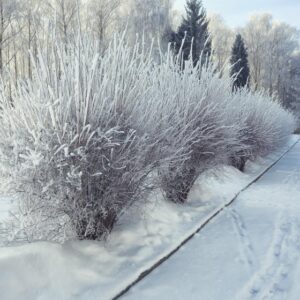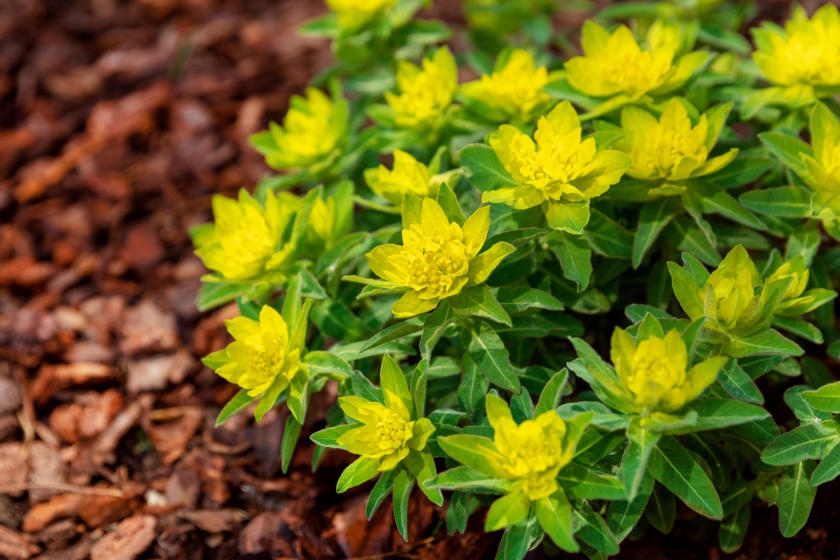Adding fertilizer and mulch to your lawn and garden is an easy weekend home improvement project that will keep your yard looking healthy and beautiful. Simply follow the gardening tips and steps below and watch the fertilizer and mulch do the work for you!
Fertilize Your Garden
For best results, fertilize your garden at the end of the summer. The more time you spend preparing your garden, the better the overall effect will be come spring.
Step 1: Choose Fertilizer
Adding fertilizer to your garden will enrich the soil and create stronger, more beautiful plants and flowers. The most common types are dry granular fertilizer and liquid fertilizer. Granular fertilizer, the most common, is slow releasing. Liquid fertilizers are quickly absorbed into the soil and easy to use with a garden hose.
Some fertilizers are packaged for certain uses and types of plants. This makes it easy to distribute the right nutrients to the right plants in your garden. Read labels for application times, amounts and conditions. Apply only as directed on the package.
Helpful Tips
Plant your garden in groupings according to their fertilizer needs.
To ensure you are using the correct type of fertilizer, purchase a soil testing kit.

Step 2: Apply Fertilizer
When you’re ready to fertilize, spread the recommended amount evenly over your garden with a rototiller or spade. Mix or till the fertilizer 4″ to 6″ into the soil. Soil type dictates how often the fertilizer needs to be applied. Sandy soils require more frequent applications of nitrogen and other nutrients than clay-type soils.
Helpful Tip
Instructions on bag will inform you of how many pounds per square feet need to be applied. For reference, 10 lbs per 1,000 sq. feet is a common application.
Safety Alert!
Any fertilizer spilled on roads or sidewalks should be cleaned up promptly. Improper use of fertilizers may contribute to pollution of lakes and groundwater, so use a broom to sweep up spills immediately.

Step 3: Water Immediately
After applying fertilizer, water the area immediately with a garden hose or watering can.

Mulch Your Garden
Spreading mulch can simplify gardening. It helps prevent weeds, reduces the need to water and keeps soil temperatures consistent.
Step 1: Water the Soil
It is very important to water your soil prior to mulching. Dry soil and mulch combined can actually prevent water from soaking into the ground. Use a garden hose and allow the water to soak into the soil 6 to 8 inches.

Step 2: Remove Weeds
Remove existing weeds from the area you plan on mulching with a trowel.

Step 3: Add Materials
Typically, wood chips and bark mulch work well within gardens because they are uniform and take a long time to decompose.

Step 4: Layer Mulch
Layer mulch 2″ to 4″ deep. It should be thick enough to block light and keep weeds from sprouting. Be careful to keep mulch away from the crown of plants, as it could potentially kill the plant.

Step 5: Replenish Mulch
Mulch breaks down steadily over time. Replenish when just a thin layer remains. By adding mulch, you are improving your soil and reducing the need to water and pull weeds.
Great work! When you keep up with fertilization and mulching, you keep your garden thriving. Watch and enjoy your garden as it continues to flourish!
Fertilize Your Garden: Project Shopping List
Here’s what you’ll need to complete this project successfully.
- Granular fertilizer or liquid fertilizer
- Garden hose or watering can
- Soil testing kit
- Rototiller or spade
- Water
Mulch Your Garden: Project Shopping List
Here’s what you’ll need to complete this project successfully.

